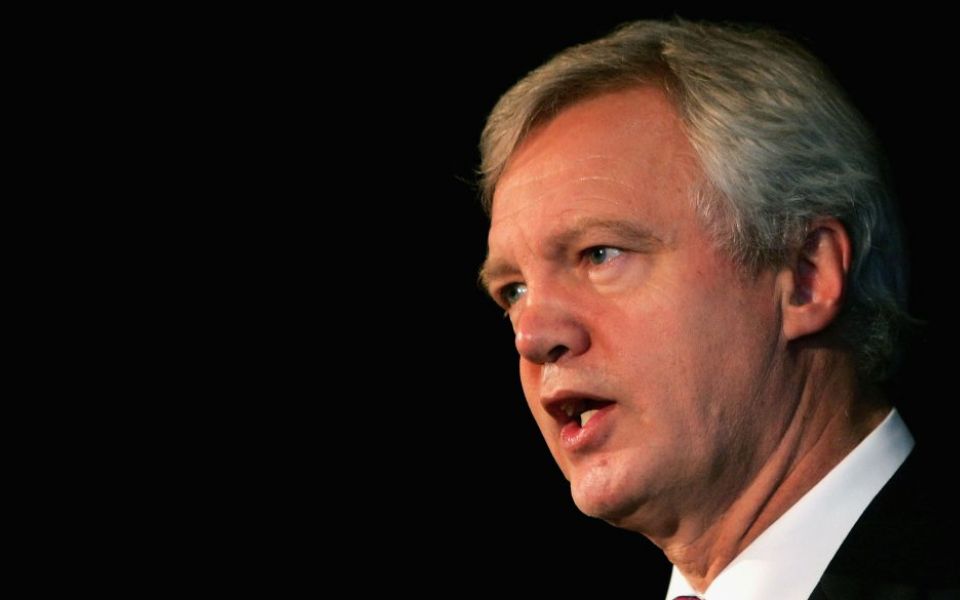David Davis (Contributor)
Davis is secretary of state for Exiting the European Union.
Today marks the start of an intensification of our preparations for our exit from the EU. The government will publish a series of papers on the new deep and special partnership the UK wants to build with the EU.
These papers set out key issues for the government’s approach to that partnership, developing the themes and framework we have already laid out. They draw on the engagement the government has sought from external parties with expertise on each policy area and are the result of the extensive work undertaken across government over the past year.
This is an important next step in delivering on the result of last summer’s referendum and getting on with the task set to us by the British public.
The first in this series of papers, published today, sets out the government’s intention to secure ambitious new customs arrangements with the EU
When we leave the EU, we will also leave the EU customs union. We will, therefore, need to put in place new customs arrangements. These must deliver on three clear objectives
First, they must facilitate the freest and most frictionless possible trade in goods between the UK and the EU.
Second, they must ensure that the UK can develop a trade policy which enables us to build a stronger, fairer and more prosperous UK. One that is more outward-looking than ever before. As we leave the EU, the UK must get out into the world, forge its own path, and be a true beacon for free trade.
Third, the new arrangements must ensure no return to the borders of the past between Ireland and Northern Ireland. We are also clear that this cannot mean any new customs borders being created inside the UK. The next paper in our series, published tomorrow, will set this out in more detail.
We believe that there are two broad approaches that can deliver on these objectives. The first is a highly streamlined customs arrangement. This would involve simplifying requirements to the fullest extent possible, in order to allow products to move quickly and seamlessly across borders. This will be achieved both through negotiated and unilateral measures designed to reduce and remove barriers to trade.
This approach marries tried and trusted customs processes – used in the UK, EU and across the world – with innovative measures to help make a trade as frictionless as possible. Clearly, this will be far more straightforward if we achieve the tariff-free and barrier-free trade with the EU which we are seeking. It is therefore closely linked to securing a comprehensive free trade agreement. This will help to ensure businesses both in the UK and the EU can trade as swiftly and easily as possible.
A second option is a new customs partnership with the EU, based on aligning our customs approaches. This would negate the need for a customs border between the UK and the EU. This approach would be entirely novel and is therefore untested. It would mean new systems requiring businesses to distinguish between goods bound for the UK and those for the EU, in order to allow the UK to strike international trade agreements. We are keen to further engage with businesses to establish the practical complexities in making such an option work.
Both deliver on our key objectives and we do not think it is right at this stage to narrow down our options. Where we land will ultimately be determined by further discussion with business and our negotiations with the EU.
But whatever our new customs arrangements, it is clear we must move to them in a smooth and orderly manner. People and businesses on both sides of the Channel will benefit from time to implement our new customs arrangements. This certainly would be delivered through an interim period of close association with the EU customs union, based on a new and time-limited customs union between the UK and the EU. We have been clear that, once we exit the EU, the UK will seek bold new trade relationships with other countries; but we would not bring into force any new agreements which were not consistent with the terms of this interim period. At all stages of our exit process, we intend to act in good faith and sincere cooperation with our EU partners.
To avoid any unnecessary disruption both sides should seek to agree on an interim period early in the negotiations. That would be a strong indicator to all of our businesses and citizens that politicians on both sides are serious about finding a constructive outcome that works for all involved. Doing so is our shared duty.
I am confident that we can achieve this. For this is an area where there is already significant common ground between the UK and the EU.
It is clear from our Article 50 letter and from the EU’s negotiating guidelines that both sides recognise the mutual benefit of providing time for everyone involved to implement the new arrangements. Whether it is a UK car manufacturer with a supply chain that runs across Europe or a European port operator which manages huge volumes of UK trade – all need time to adjust to the new partnership. The united desire to avoid unnecessary disruption or a disorderly exit for the United Kingdom from the European Union is a strong foundation for the negotiations.




